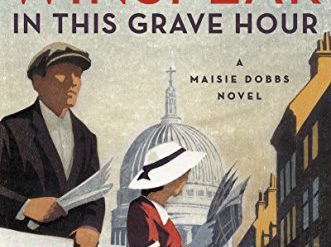
What we know today as Scandinavian or Nordic noir originated in the 1960s in the ten-book Martin Beck novels written by the husband-and-wife team of Maj Sjöwall and Per Wahlöö. These are classic police procedurals that treat the cops as human beings, without romantic embellishments. Both Left-Wing activists, Sjöwall and Wahlöö wrote the books as a vehicle to criticize contemporary Swedish society.
Estimated reading time: 4 minutes
A fraught era in Sweden and around the world
Of course, the decade of the sixties was a fraught era in many Western countries, with the increasing spread of heroin and other drugs, often violent demonstrations against the American war in Vietnam, and a gathering youth rebellion. In Sweden, growing immigration added an edge to the trouble. And all these forces come to light in the Martin Beck novels, perhaps nowhere more forcefully than in the series’s fourth book, The Laughing Policeman.
The Laughing Policeman (Martin Beck #4) by Maj Sjöwall and Per Wahlöö (1968) 211 pages ★★★★★
Sweden’s first mass murder, and the police are stumped
The novel opens in November 1967 in Stockholm. Superintendent Martin Beck of the Swedish national police had been on the job for twenty-three years. He has the misfortune to run the murder squad when the country’s first mass murder turns up. Someone with an automatic weapon has murdered nine people on a city bus late one evening, and there are no clues whatsoever about the motive, much less the identity of the perpetrator. In the middle of an especially unpleasant Swedish winter with Christmas approaching, Beck and his colleagues devote countless hours pursuing the most inconsequential details, interviewing scores of people connected with the murder victims in even the most indirect ways. They grumble a lot. And they come up with nothing. Meanwhile, the tabloid press has a field day, lampooning the police.
“The police are a necessary evil” in the Martin Beck novels
In other words, this portrayal of the cops and their critics seems right on target. Change “Stockholm” to “New York” or “Los Angeles,” and you’re unlikely to notice the difference. The Laughing Policeman is, indeed, a police procedural in the classic sense, so very unlike most of the crime novels written today that feature heroic, sometimes superhuman police officers. As one of the cynical officers on Beck’s squad notes more than once, “‘The police are a necessary evil.'” This seems to sum up the authors’s view quite nicely.
Eventually, the police solve the crime. But it’s not Martin Beck whose work is pivotal. Instead, it’s a young policeman who was one of the nine murder victims. It just took the murder squad weeks of flailing around before they figured out how to follow up properly on the young officer’s investigation.
A critic who thinks the book is funny. This reviewer doesn’t.
In an introduction, the popular novelist Jonathan Franzen professes to find humor in The Laughing Policeman. He observes that “the perfect ugliness and perfect frustration depicted in the novel are clearly comic exaggerations.” But I’m by no means so sure. I don’t know about you, but I haven’t come across a lot of humor in the Swedish novels I’ve read. And I doubt very much that Sjöwall and Wahlöö were laughing about the grim circumstances they describe in the book. Of course, Franzen is alleged to be a humorist, and I haven’t found anything to laugh about in his work, either.
“They let Martin Beck be a real policeman”
However, I do agree with Franzen’s assertion about how the couple is “honestly unsmitten” with their hero. “They let Martin Beck be a real policeman, which is to say that they resist the temptation to make him a romantic rebel, a heroic misfit, a brilliant problem-solver, an exciting drinker, a secret do-gooder, or any of the other self-flattering personae that crime writers are wont to project onto their protagonists. Beck is cautious, recessive, phlegmatic, and altogether unwriterly.” And all that is certainly true.
For related reading
I’ve also reviewed the first three books in the Martin Beck series:
- Roseanna (Martin Beck #1), reviewed at Today’s Scandinavian detective fiction started here
- The Man Who Went Up in Smoke (Martin Beck #2), reviewed at They invented Scandinavian noir
- The Man on the Balcony (Martin Beck #3), reviewed at Nordic Noir before Jo Nesbo, Henning Mankell, and Stieg Larsson
You might also enjoy my posts:
- Top 10 mystery and thriller series
- 20 excellent standalone mysteries and thrillers
- 30 outstanding detective series from around the world
- Top 20 suspenseful detective novels
- Top 10 historical mysteries and thrillers
And you can always find my most popular reviews, and the most recent ones, on the Home Page.


























